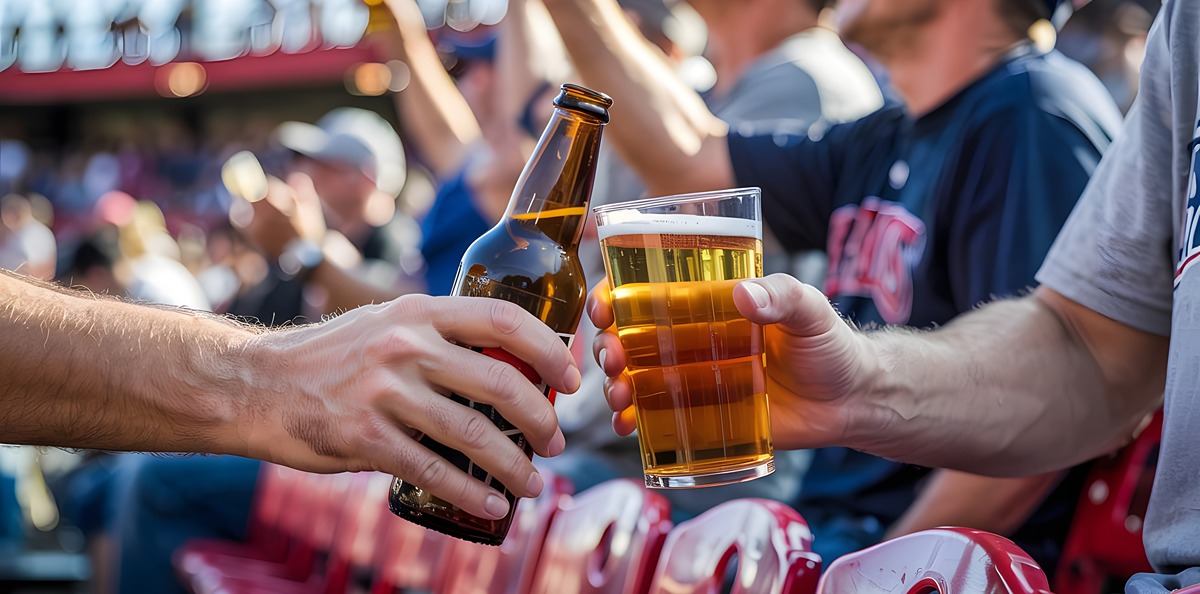Aggravated Assault Charges at a Sporting Event in Arizona
We’re Here to Help You – Talk to Our Legal Team Immediately
Sporting events are meant to bring people together—whether you’re rooting for your kid’s team, supporting your alma mater, or enjoying a professional game with friends. But when emotions run high and things get heated, even a brief encounter can turn into a legal nightmare. If you’re facing aggravated assault charges after an incident at a game, it’s important to know exactly what you’re dealing with and what steps you can take to protect your future..
Table of Contents
- What Qualifies as Aggravated Assault in Arizona?
- How Sporting Events Lead to Assault Charges
- Key Statutes and Legal Definitions
- Is This a Felony or a Misdemeanor?
- What Are the Potential Penalties for Aggravated Assault?
- Defense Tactics Used to Help Reduce or Dismiss Charges
- FAQs About Assault Charges at Events
- Important Things to Remember
- How a Defense Attorney from Guardian Law Group Can Help
At Guardian Law Group, we understand how a moment of misjudgment, or even a misunderstanding, can have life-changing consequences. This article explains what Arizona law says about felony aggravated assault, how charges often come out of sporting environments, and how attorney Christian Lueders can help you build a strong defense.
Follow us On
Free Case Evaluation
Free & Confidential Consultation
Don’t Wait – Call Us Now to Speak with an Phoenix Criminal Defense Lawyer

►What Qualifies as Aggravated Assault in Arizona?
Aggravated assault, also referred to as just “agg assault”, is a serious charge in Arizona. It covers more than just getting into a fight. Under ARS § 13-1204, an assault becomes “aggravated” when certain factors are involved—like serious injury, the use of a weapon, or if the person assaulted is someone like a police officer, teacher, or healthcare worker.
These are some situations that can lead to an aggravated assault charge:
- Someone suffers serious physical harm
- A weapon (even something like a beer bottle) is involved
- The person assaulted was unable to defend themselves
- The altercation happened inside someone’s home
- The alleged victim was a public servant doing their job
In the charged environment of a sporting event, these things can happen quickly, and suddenly you’re facing a felony.

► How Sporting Events Lead to Assault Charges
Crowded stadiums, long lines, passionate fans, alcohol, and tense moments on the field – it doesn’t take much for things to boil over. We’ve seen assault charges come out of all kinds of sports-related scenarios, like:
- Heated arguments between rival fans turning physical
- Parents getting into fights at youth games
- Scuffles in concession lines or parking lots
- Confrontations involving security or police
Even if you didn’t start the fight or believed you were defending yourself, you could still end up charged, especially if someone was injured or a weapon was alleged to be involved.
► Key Statutes and Legal Definitions
Here are the main Arizona laws that apply:
- ARS § 13-1203 – Basic Assault: This includes hitting, pushing, or threatening someone.
- ARS § 13-1204 – Aggravated Assault: This adds aggravating factors like serious injury or weapons.
- ARS § 13-105 – Definitions: This statute helps define terms like “serious physical injury” and “dangerous instrument.”
For example, if you throw a punch and someone breaks their nose, that can escalate a misdemeanor assault to a felony aggravated assault.

► Is This a Felony or a Misdemeanor?
Aggravated assault is always a felony in Arizona. The level of felony depends on the details:
- Class 6 felony: Least severe, often involving minor injuries.
- Class 3 or 4 felony: Moderate injuries or use of a dangerous object.
- Class 2 felony: Most serious—involves significant harm or assault on law enforcement.
Felonies carry weighty consequences. Prison time, heavy fines, loss of rights (like voting or owning a firearm), and a permanent criminal record are all on the table.
► What Are the Potential Penalties for Aggravated Assault?
Sentencing depends on your felony class and history, but here are some potential consequences:
- Time in prison (months to years)
- Probation with strict conditions
- Fines and court fees
- Mandatory anger management or counseling
- Restitution to the alleged victim
- Restrictions on attending future events or venues
Even a lower-level felony can upend your life. And unlike some minor offenses, this is the kind of charge that doesn’t just go away on its own.
| Felony Class | Potential Prison Sentence (First Offense) | Repeat Offender Penalties | Description / Aggravating Factors | Statute Reference |
| Class 6 Felony | 6 months – 1.5 years | Up to 2.75 years | Minor injuries, no weapon used, limited aggravating factors | ARS § 13-1204(A)(11) |
| Class 4 Felony | 1.5 – 3 years | Up to 6 years | Use of a dangerous instrument or causing temporary but substantial disfigurement | ARS § 13-1204(A)(2), (B) |
| Class 3 Felony | 2.5 – 7 years | Up to 15 years | Serious physical injury or assault against protected persons (e.g., school employees) | ARS § 13-1204(A)(1), (8) |
| Class 2 Felony | 7 – 21 years | Up to 35 years | Severe injury with a deadly weapon or assault on law enforcement during official duty | ARS § 13-1204(A)(1), (9) |
► Defense Tactics Used to Help Reduce or Dismiss Charges
No two cases are the same, so your defense shouldn’t be cookie-cutter. Attorney Christian Lueders from Guardian Law Group takes a personal approach to every case, building defenses that fit the facts. Here are some of the legal strategies we use:
- Self-defense: Showing that you acted to protect yourself or someone else
- Mutual combat: Demonstrating that both parties willingly engaged
- Lack of intent: Arguing there was no intent to harm (e.g., accidental contact)
- False accusations: When the charges are based on exaggerations or lies
- No weapon involved: Challenging claims about a “dangerous instrument”
- Violation of rights: If police didn’t read Miranda rights or made an unlawful arrest
- Insufficient evidence: The state must prove every part of the charge beyond a reasonable doubt
Sometimes, the best outcome is a dismissal. In other cases, we can negotiate to reduce the charge or sentence. Either way, our goal is to protect your future.
► FAQs About Assault Charges at Events
Q: Can I be charged even if I didn’t start the fight?
Answer: Yes. Arizona law can still hold you responsible depending on how you responded.
Q: Does it matter if alcohol was involved?
Answer: Not really. It might be a factor in sentencing, but it doesn’t excuse the behavior.
Q: Will I be banned from the stadium?
Answer: Possibly. Many venues impose bans in addition to legal consequences.
Q: What if the other person doesn’t want to press charges?
Answer: The prosecutor can still go forward with the case, even without the victim’s cooperation.
Q: Can I be charged if no one got seriously hurt?
Answer: Yes. Threats, minor injuries, or use of a weapon can still qualify.
Q: What if I’m under 18?
Answer: Juvenile court might handle your case, but serious offenses can be charged in adult court.
Q: Are there extra penalties for fights at school events?
Answer: Yes. Events involving minors or school grounds can carry enhanced consequences.
► Important Things to Remember
- Aggravated assault at a sporting event is a felony
- You can be charged even if you didn’t throw the first punch
- Alcohol or emotions are not valid defenses
- Felony convictions carry lifelong consequences
- The right defense attorney can make all the difference

► How a Defense Attorney from Guardian Law Group Can Help
Facing an aggravated assault charge after a sporting event is scary, especially if it’s your first time in serious legal trouble. At Guardian Law Group, we know what’s at stake. Attorney Christian Lueders brings real courtroom experience, legal insight, and strong negotiation skills to every case.
Mr. Lueders doesn’t just file paperwork and hope for the best. He investigates, talks to witnesses, challenges the prosecution, and builds your defense based on what actually happened, not assumptions.
Our team offers free, confidential consultations so you know where you stand from day one. If we take your case, you’ll work directly with an experienced attorney who cares about your outcome.
Call Guardian Law Group today at (480) 316-4618 to schedule your consultation. We’re here to help you get through this with clarity, strategy, and real support.






